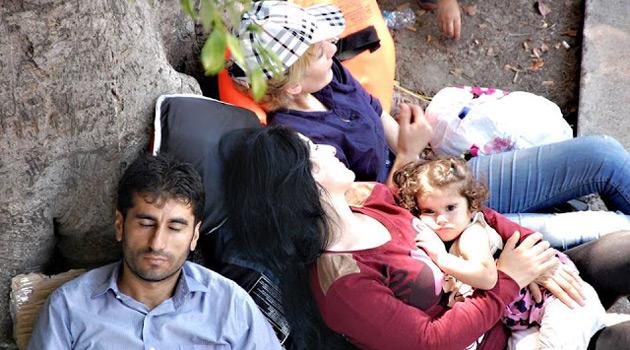Human Rights Watch says Czech debate on migration would cause an uproar if understood in the West

According to Andrew Stroehlein of the Brussels branch of Human Rights Watch (HRW), the domestic public debate about the refugee crisis is being led in the Czech Republic in a way that would cause an international uproar if it were happening in a Western European country. The reputation of the Czech Republic and its politicians, he believes, is protected to a significant degree by the fact that few people outside the country speak Czech.
"If some of the things that have been said recently in the Czech debate were instead said in France or Germany, for example, the international community would be in disarray over them – not just because it would show a very different atmosphere in that society, but because the outside world would immediately take notice," Stroehlein believes. He went on to say that the Czech Republic, Hungary and Slovakia, three of the four Visegrad group countries (the V4) are living in a "comfortable, isolated bubble".
It is precisely the V4 countries that are currently the loudest opponents of the European Commission’s proposals to redistribute some of the asylum-seekers currently in Greece, Hungary and Italy among other EU-28 states. Discussions in the V4 of EU quotas for refugee redistribution and the more general debates about the current wave of migrants and refugees, comprised of people from Syria and other countries in the Middle East and Africa, are frequently permeated with anti-Muslim and xenophobic sentiment.
This is not just a matter of online discussions. Hungarian Prime Minister Viktor Orbán, during his visit to Brussels last week, defended to journalists what he called the right of Hungarians to demand that large groups of Muslims not live in their country by referring to "historical experience".
In the Czech Republic, Stroehlein notes that the most vocal group on this issue is called "We Don’t Want Islam in the Czech Republic", which is led by biologist Martin Konvička. "It is interesting that the most extreme, strongest anti-Muslim rhetoric is coming from a country that has absolutely no experience with them (with Muslims)," the HRW representative said.
However, he believes it is far more serious that such a group has also been supported in interviews given to the media by Czech President Miloš Zeman. "This is bizarre. I think that if something like this were to happen in an EU Member State whose language is understood by more people, the situation would be completely different," Stroehlein said.
Journalist Jan Čulík has already translated some of the controversial remarks made by Czech activists and politicians and published them online. "Once this gets out of the Czech bubble and someone translates a couple of these articles and quotations, others will be amazed. This is slowly happening. There is a need to get some fresh air into this closed debate," Stroehlein noted.
This is not, of course, the first time that Czech politicians have done their best to exploit and play on citizens’ concerns and fears. Stroehlein says that Miroslav Sládek, for example, behaved this way in the Czech Republic in the 1990s but always remained a fringe figure on the political scene.
"This is not new. However, I think it’s stronger now and more mainstream than ever before. That prompts concern," the HRW representative said.